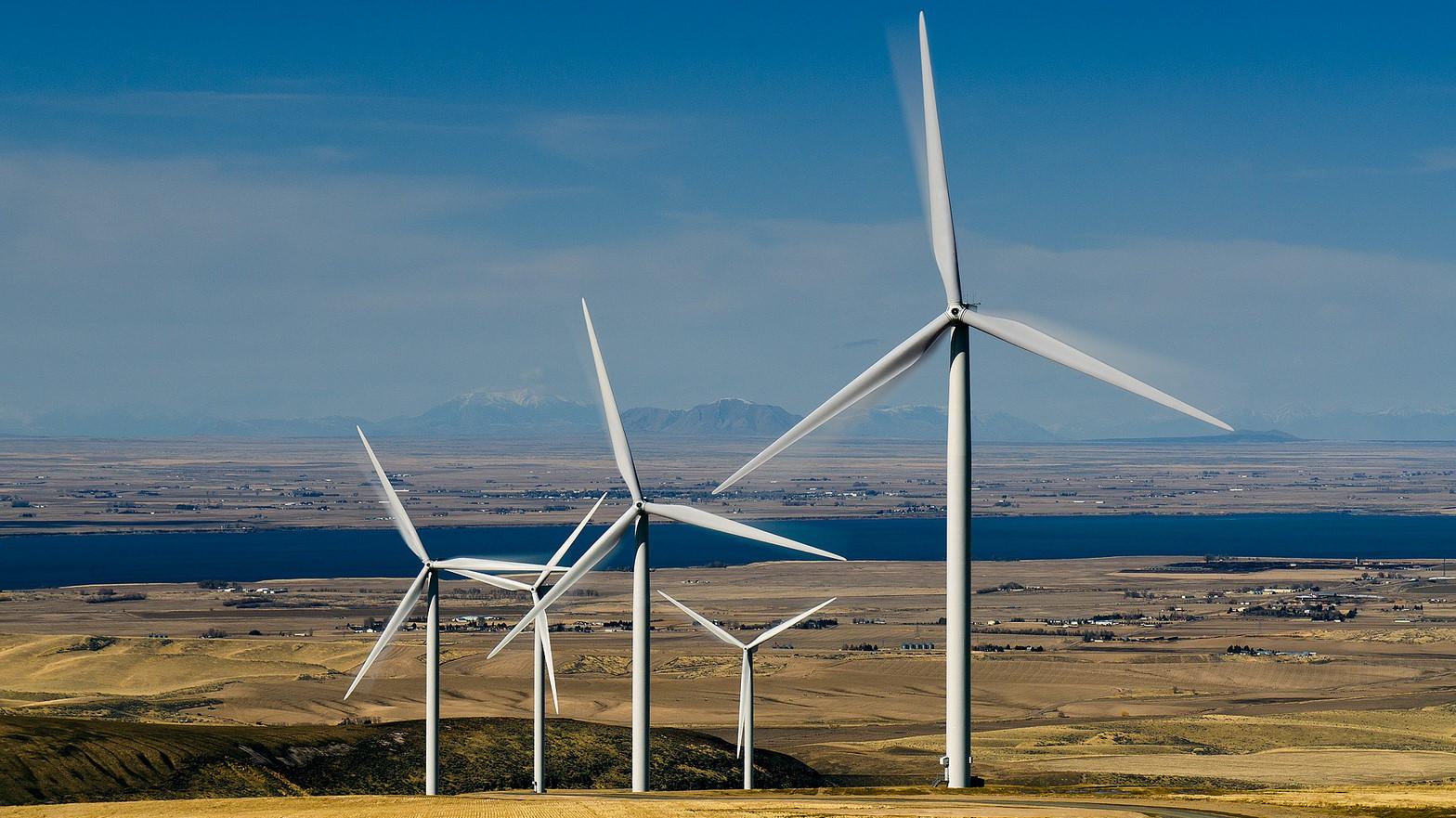For solar and wind energy projects, a new lease on land
A wind farm in Power County, Idaho
The Bureau of Land Management announced a new regulation in November, changing how public lands are leased for solar and wind energy development. The rule incentivizes leases on lands that aren’t needed for conservation, and is intended to make financing easier for renewable energy development.
The Obama Administration began reviewing sustainable energy production on public lands in 2012. This rule, which came in response, has the support of lawmakers across the aisle: Some 14 Republican and Democratic members of Congress have endorsed it. In a divided House, what brings lawmakers together over clean energy policy?
“It's addressing both economic and environmental concerns that can raise revenue for the US, as well as increase deployment of clean energy to help us all,” says Jennifer Macedonia, an energy fellow at the Bipartisan Policy Center.
According to Macedonia, the new rule established a competitive bidding process for renewable energy projects on public lands. In the past, lease applications for a tract of land have often been considered on a first-come, first-served basis. “And that's not always the best application,” she adds.
What’s more, the regulation incentivizes that projects take place on what Macedonia calls “low-conflict” lands — public lands that haven’t been set aside for wildlife or other special uses. According to Macedonia, the new incentive is an environmental boon, but also a practical one: Wind and solar energy projects on public lands typically face a lengthy review process.
“Because we're talking about potential conflicts with the Endangered Species Act, potentially sensitive lands, wind energy and solar development have complex environmental reviews associated with them to determine if there are any conflicts,” she says, adding that the review process has even scared some developers away. “In many cases, people were more likely to look to private lands instead of public lands.”
But the new regulation has some critics in the industry, including developers who worry that it will make leasing on public lands more difficult. In a statement, the American Wind Energy Association writes that the rule “will add time, uncertainty, complexity, and expense to a process that was already more difficult than developing on private lands.”
“Some in the solar and wind development industry would have liked the rule to go further in smoothing the way for renewable development on federal lands, not just in these pre-screened designated leasing areas,” Macedonia notes.
But she says the rule is designed to strike a delicate balance: between the need for detailed, project-specific environmental reviews, and the goal of encouraging renewable energy development.
“To balance those needs, the rule settles on a dual approach, where prescreened non-conflict lands get a green-light, expedited process, and the rest of public lands still require jumping through more hoops,” she adds.
The incoming Trump administration could still block or change the rule, despite its bipartisan support. But because it brings wind and solar energy leasing closer to the competitive process used by the fossil fuel industry, Macedonia is hopeful that the regulation will remain intact.
“Part of the Trump energy platform is an all-of-the-above approach to energy, including wind and solar,” she says. “However, Trump has said that he favors fossil fuel development on federal lands over wind, solar and geothermal, but he's not indicated that he would undo these rules.”
“There's a lot in [the rule] in terms of making it a competitive process, which is similar to the way oil and natural gas leasing on federal lands is done,” she says. “It fits into the all-of-the-above approach to energy. It fits into using market-based approaches, so there is a lot that the Trump administration should want to keep in this rule and a lot of reasons for keeping it on the books.”
This article is based on an interview that aired on PRI’s Living on Earth with Steve Curwood.
We want to hear your feedback so we can keep improving our website, theworld.org. Please fill out this quick survey and let us know your thoughts (your answers will be anonymous). Thanks for your time!
